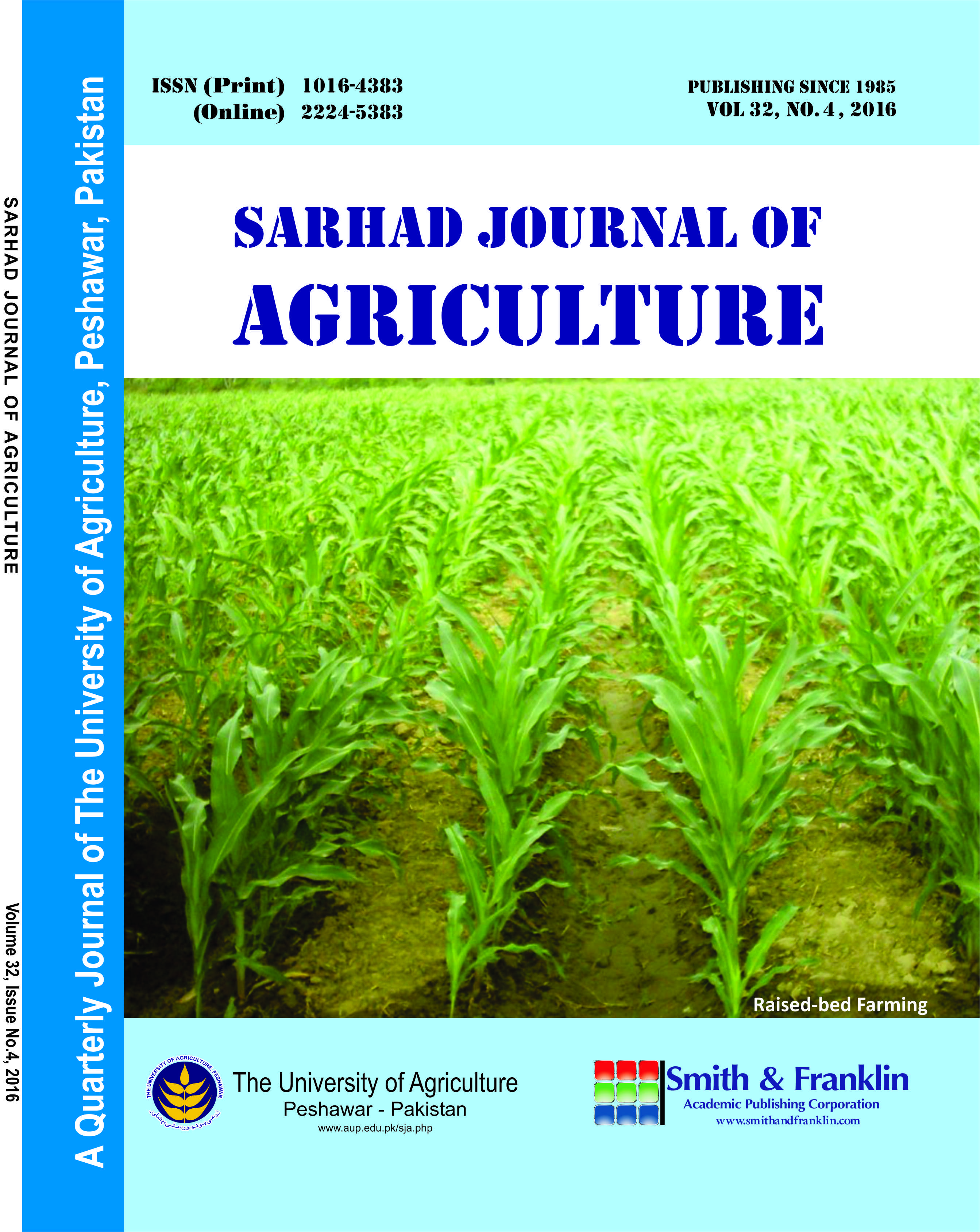Response of Wheat to Tillage and Nitrogen Application in a Cotton-Based Cropping System
Response of Wheat to Tillage and Nitrogen Application in a Cotton-Based Cropping System
Khalid Usman, Aziz-Ur-Rehman
ABSTRACT
Wheat (Triticum aestivum L.) yield and yield components are influenced by tillage and time of nitrogen application as well as soil type and cropping system. The objective of this study was to evaluate the response of spring wheat seeded in three tillage systems viz., zero (ZT), reduced tillage (RT), and conventional tillage (CT) to split application of N fertilizer [50 kg N at sowing + 100 kg N ha-1 at first irrigation (T1); 50 kg N at first irrigation + 100 kg N ha-1 at second irrigation (T2); 50 kg N at sowing + 50 kg N at first irrigation + 50 kg N ha-1 at second irrigation (T3); and 50 kg N at first + 50 kg N at second + 50 kg N ha-1 at third irrigation (T4)] in cotton (Gossypium hirsutum L.) based cropping system. The experiment was conducted on a silty clay soil at Agricultural Research Institute, Ratta Kulachi, Dera Ismail Khan, Pakistan, during 2010–2011. The effects of three tillage systems as main plot factor and four split N fertilizer application timings as subplot factor were studied in a randomized complete block design with split plot application. The results revealed that zero tillage had higher spikes m-2, 1000 grain weight and biological yield compared to other tillage systems. However, N agronomic efficiency, grain yield and net benefit were similar for all three tillage systems. Regarding N application timing, T3 had highest values for N agronomic efficiency, grain yield and yield components. Results also suggested that application of N in three splits particularly in T3 is more productive and economical strategy for wheat production following cotton. It is concluded that wheat seeded in zero tillage following cotton did not decrease stand or yield compared to conventional tillage and wheat grain yield and N agronomic efficiency increased with application of 150 kg N ha-1 in three equal splits viz. at sowing, first irrigation, and second irrigation.
To share on other social networks, click on any share button. What are these?








